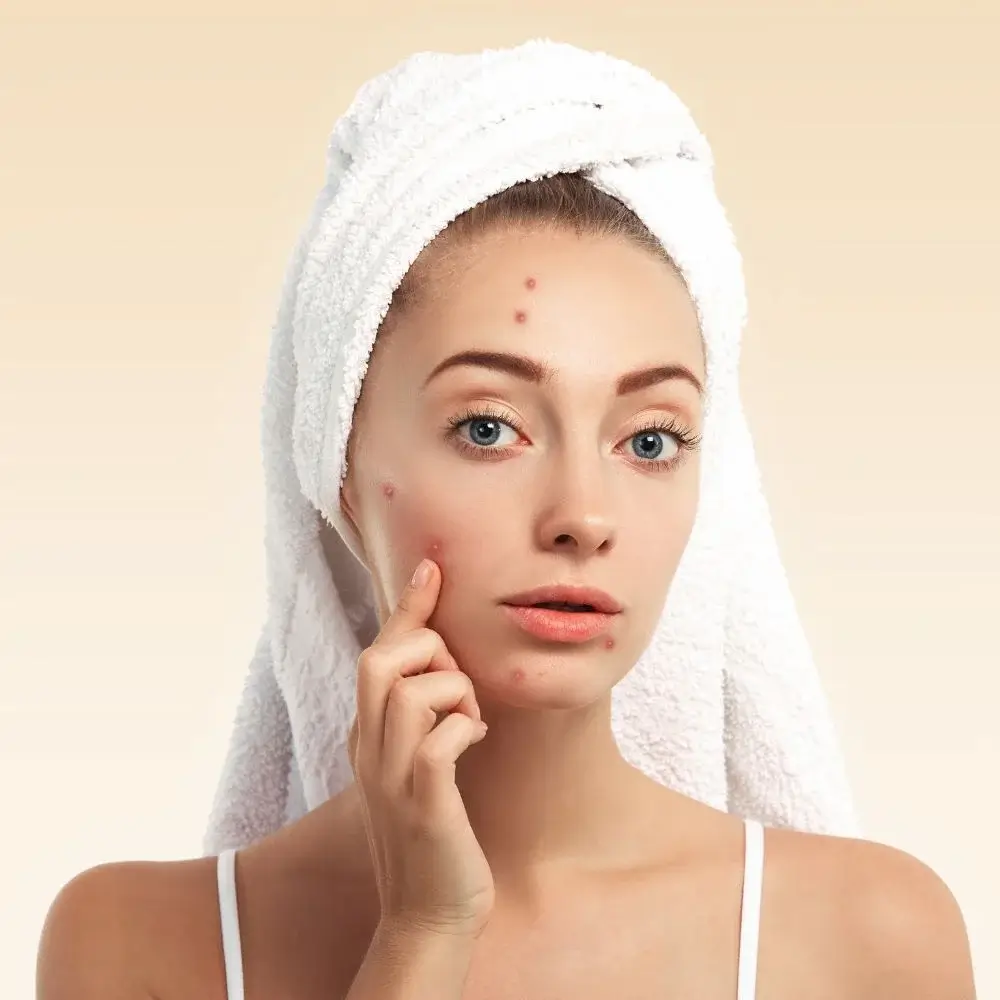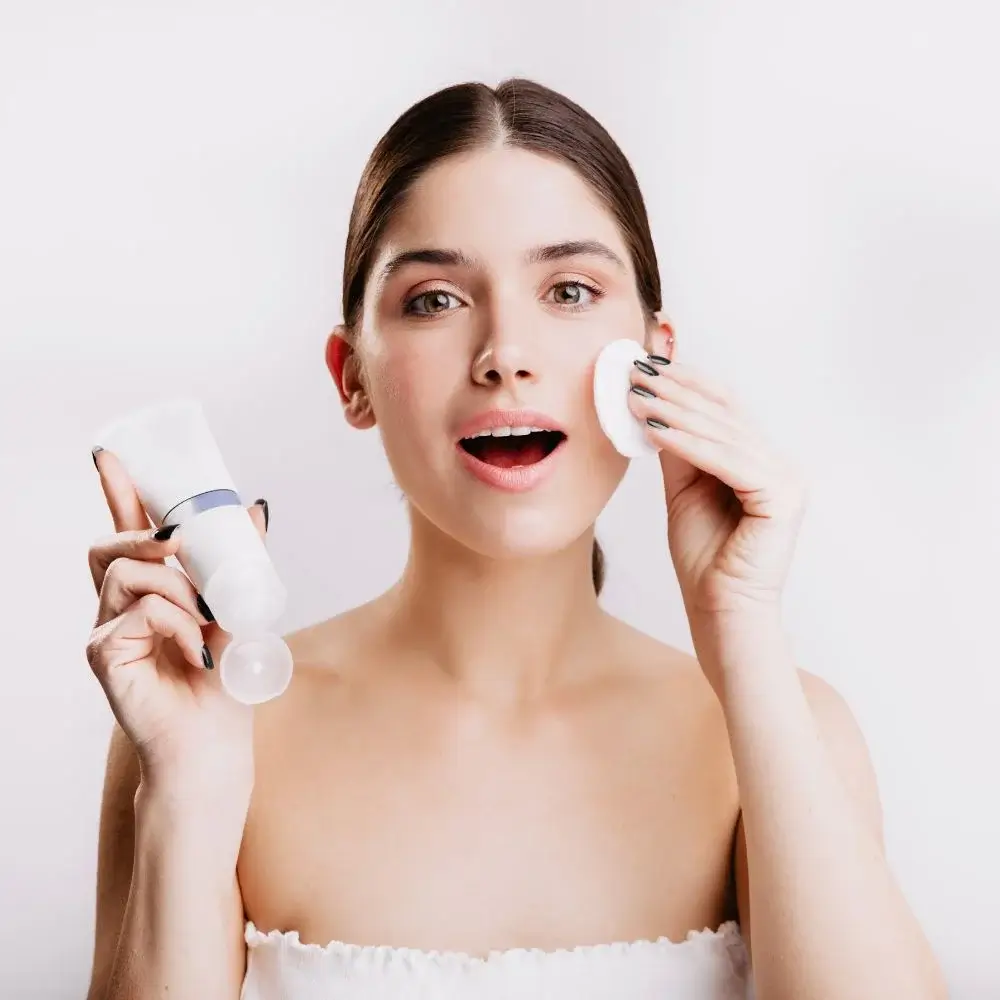To effectively combat acne scarring, it's essential to understand the different types of scars and the factors that contribute to their formation. Acne scars can range from shallow depressions to raised bumps and can be classified into atrophic scars, hypertrophic scars, and keloid scars. The severity of scarring depends on various factors, such as the depth and duration of the acne lesions, genetics, and individual skin healing processes.
Prevention Strategies
Prevention is key when it comes to minimizing the risk of acne scarring. Adopting a proactive approach can significantly reduce the likelihood of scarring and promote healthier skin. Here are some essential prevention strategies:
- Daily Skincare Routine: Establish a consistent skincare routine tailored to your skin type. Cleanse your face twice daily using a gentle cleanser to remove excess oil, dirt, and bacteria.
- Gentle Cleansing and Exfoliation: Avoid harsh scrubbing or using abrasive exfoliants, as they irritate the skin and potentially worsen acne. Opt for gentle exfoliation methods to promote cell turnover and prevent clogged pores.
- Avoid Picking or Squeezing: Resist the temptation to pick or squeeze acne lesions, leading to further inflammation and increasing the risk of scarring. Instead, consult a dermatologist for safe and effective extraction methods.
- Protecting Skin from Sun Damage: Shield your skin from harmful UV rays by wearing sunscreen with a broad-spectrum SPF of 30 or higher. Sun exposure can darken acne scars and delay the healing process.
Treatment Options
In addition to prevention strategies, various treatment options can help minimize the appearance of existing acne scars. Consult a dermatologist to determine the most suitable treatments for your scarring. Some common treatment options include:
- Dermatological Procedures: Dermatologists can offer a range of procedures such as laser therapy, chemical peels, microneedling, and dermal fillers to reduce the appearance of acne scars.
- Topical Treatments: Over-the-counter creams or gels containing ingredients like retinoids, vitamin C, or alpha hydroxy acids can help promote skin cell turnover and improve the texture and tone of the skin.
- Professional Skincare Recommendations: Working with a skin care professional can provide personalized recommendations for targeted treatments and products to address your specific acne scars effectively.
Lifestyle Factors
In addition to skincare and treatment options, certain lifestyle factors can also influence the risk of acne scarring. Consider the following:
- Diet and Hydration: Maintain a healthy, balanced diet rich in fruits, vegetables, and antioxidants. Staying hydrated by drinking adequate water can also support overall skin health.
- Stress Management: Stress can exacerbate acne and delay the healing process. Incorporate stress-reduction techniques such as meditation, exercise, or engaging in hobbies to help manage stress levels.
- Good Sleep Habits: Prioritize quality sleep to allow your skin to repair and regenerate overnight. Aim for 7-9 hours of uninterrupted sleep each night.
Acne scarring can be a challenging aspect of dealing with acne, but with the right prevention strategies, treatments, and lifestyle choices, you can minimize the risk and achieve smoother, healthier-looking skin. Remember to be patient and consistent with your skincare routine, seek professional guidance when necessary, and embrace a proactive approach to skincare. By taking these steps, you'll be well on your way to a more confident and radiant complexion.
Through extensive research, we have uncovered the most effective acne treatment available. We invite you to take the next step to achieve clearer skin. Follow the provided link to unveil your new favorite Best Acne Treatment. This meticulously curated solution is tailor-made to address your unique skincare needs, offering a promising path to a healthier and more radiant complexion. Click now to explore and embrace the Best Acne Treatment, embarking on a transformative experience toward achieving blemish-free skin. Your quest for the ideal skincare solution begins here – follow the link and discover the key to unlocking your best skin yet.
What is the connection between acne and hormonal imbalances?
The intricate connection between acne and hormonal imbalances lies in the pivotal role hormones, particularly androgens, play in stimulating sebum or oil production. Increased sebum production can result in clogged pores, creating an environment conducive to acne development. Hormonal fluctuations, prevalent during adolescence, menstruation, and conditions like polycystic ovary syndrome (PCOS) often trigger breakouts. Recognizing this link is fundamental for effective acne management. Tailored treatments addressing hormonal imbalances, such as oral contraceptives or anti-androgen medications, offer a comprehensive strategy to tackle the root cause and achieve sustainable, long-term control over acne.

What is the significance of a dermatologist in treating acne?
The significance of a dermatologist in acne treatment extends beyond mere skincare advice. Dermatologists possess specialized knowledge to diagnose the specific type of acne, identify potential triggers, and formulate a comprehensive treatment plan tailored to individual needs. Prescription medications, such as topical retinoids or oral antibiotics, coupled with advanced procedures like chemical peels or laser therapy, ensure a multifaceted approach for optimal results. Regular monitoring and adjustments to the treatment plan based on individual responses highlight the importance of dermatological involvement in managing complex acne cases, providing a higher likelihood of achieving clearer and healthier skin.

What is the impact of environmental factors on acne-prone skin?
The impact of environmental factors on acne-prone skin is considerable. Pollution, humidity, and exposure to UV radiation can exacerbate acne by increasing inflammation and contributing to the clogging of pores. To mitigate these effects, individuals with acne-prone skin should adopt protective measures. Using non-comedogenic sunscreens shields the skin from harmful UV rays without causing other breakouts. Adjusting skincare routines to account for environmental conditions, such as choosing lightweight and oil-free formulations in humid climates, is pivotal for minimizing the impact of external factors on acne and maintaining a more transparent, healthier complexion.

How does the use of retinoids benefit acne-prone skin?
Retinoids, derivatives of Vitamin A, offer a plethora of benefits for acne-prone skin. These compounds accelerate cellular turnover, preventing the accumulation of dead skin cells that contribute to acne formation. Retinoids possess anti-inflammatory properties, effectively reducing redness and swelling associated with acne lesions. By unclogging pores and promoting collagen production, retinoids not only treat existing acne but also prevent future breakouts. Their effectiveness is maximized through gradual incorporation into the skincare routine under the guidance of a dermatologist, ensuring optimal results and skin health.

How should one adjust their skincare routine in different seasons to manage acne?
Adapting a skincare routine to the changing seasons is crucial for effectively managing acne throughout the year. Opt for lightweight, non-comedogenic products in warmer months to prevent excess oil buildup and minimize the risk of clogged pores. Conversely, in colder weather, focus on maintaining hydration with oil-free moisturizers to counteract dryness without compromising the skin's balance. Consistency in cleansing, sunscreen application, and adjusting product formulations according to seasonal demands ensures a proactive and adaptive approach to acne management, promoting clear and healthy skin year-round.
Should acne treatments be used consistently or as needed?
Consistency in using acne treatments is paramount for achieving and maintaining optimal results. Acne management demands a proactive approach, and adhering to a regular application schedule of prescribed medications is essential for preventing breakouts and fostering clearer skin. Skipping treatments can impede progress, allowing acne to resurface. The dermatologist's recommendations should be followed diligently, as on-demand or sporadic usage may compromise the effectiveness of the treatment plan. A continuous and regular skincare routine ensures ongoing control over acne and minimizes the risk of recurrent breakouts, contributing to sustained and successful acne management.







